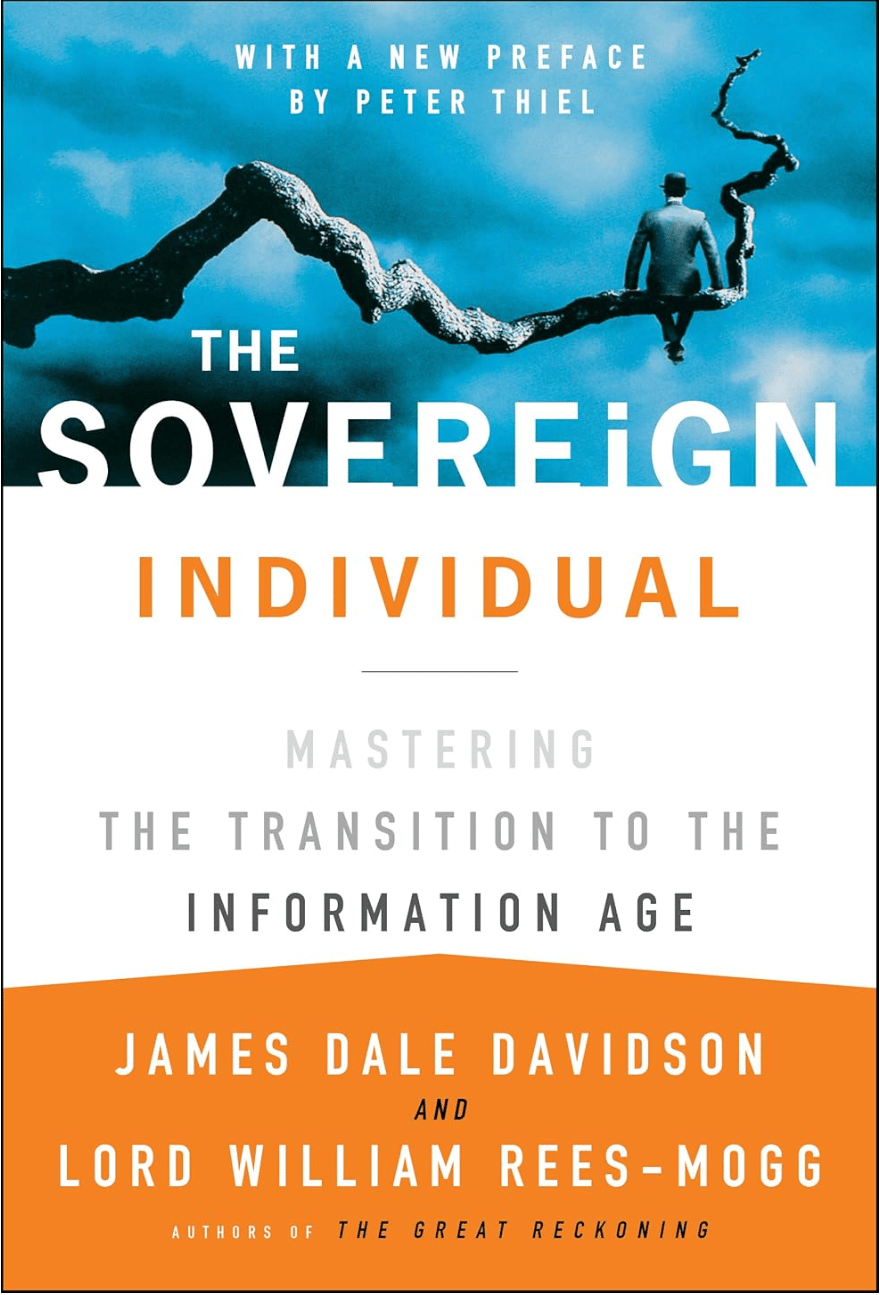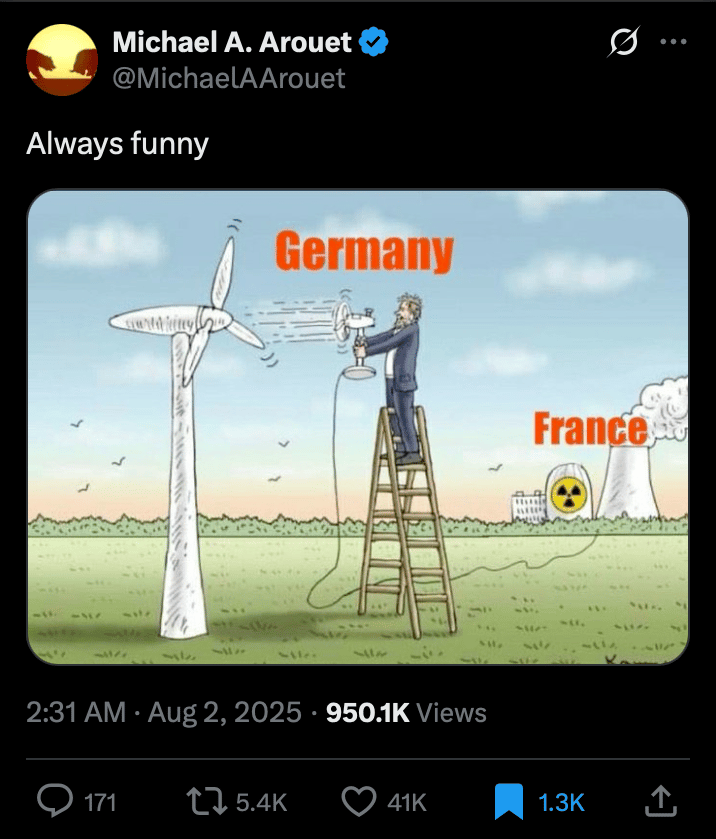
Europe's Addiction to Debt, Spooked European Clients Showing Resilience to Trump, and How Bitcoin Maximalism Hurts More Than It Serves
Good morning, it's Friday, August 8, 2025, and this week we're pulling apart Europe's addiction to America's debt-heavy economy, asking if the continent can finally step out on its own and take charge of the free world with some gutsy, no-holds-barred free-market ideas... and we're getting real about Bitcoin's "freedom tech," where its most passionate evangelists—going on about decentralized smarts and liberty—end up sounding a lot more like old-school Marxist central planners than freedom fighters, blocking actual growth and real competition.
Unchained This Week
⚡Powered by ₿itcoin ⚡
Debt-Liquidity Cycle: Europe's Vulnerability to US Dynamics
The global financial system is like a game of Jenga, where each block precariously balances the tower, held together by a web of dynamic interventions from central banks. At the core of this scenario is Europe, burdened with a colossal €13.3 trillion debt, vulnerable to the slightest shifts from the U.S. or Japan. To prevent this structure from collapsing, it's essential to allow free markets to flow and rekindle the essence of genuine, unrestricted trade.

Unchained Markets
Europe Unchains from Wall Street in Trump's Trade Storm
As US President Donald Trump's aggressive trade rhetoric escalates tensions with European partners, corporations across the continent are prudently diversifying their banking ties away from Wall Street behemoths, favoring local institutions like Deutsche Bank and UBS. This shift, evidenced by a surge in euro bond deals excluding US banks, underscores the distortive fallout of Trump’s protectionist policies, and opens the door for Europe to advance smarter by embracing innovative open-market strategies that outpace the archaic, old-time protectionism championed by Trump.
Bitcoin, Blockchain, and Shitcoins
From Evangelist to Extremist: A Marxist, Monopoly Vision For Bitcoin
Jack Mallers, CEO of Twenty One Capital, has recently embarked on a high-profile media campaign, forecasting that Bitcoin could capture a staggering $400-500 trillion in value, encompassing the entire global store of value market. He posits that assets ranging from property deeds and equities to fine art—virtually every tangible and intangible asset worldwide—will ultimately be tokenized, valued, and transacted exclusively on the Bitcoin blockchain. As an engaging and charismatic orator, Mallers presents his vision with the fervor of a technologically enlightened evangelist. However, while advocating for spontaneous order and decentralized wisdom—core tenets of Bitcoin's foundational philosophy—Mallers' rigid Bitcoin-only utopia demands a rigorous reality assessment, which reveals a resistance to adaptive evolution and efficiency, resembling Marxist central planning more than true competition.
Unchained Quote
The state is that great fiction by which everyone tries to live at the expense of everyone else.
Unchained Throwback
Last month’s most popular feature story, on repeat:
Europe's fertility rate has fallen to an average of 1.4 children per woman, echoing a similar decline in the U.S., where it’s now at 1.6. This isn’t just about numbers—it’s about skyrocketing costs, warped priorities, and the complex role of immigration. This article digs into what’s driving this trend, what it means, and how we can tackle it by focusing on personal freedom rather than government decrees.
Unchained Snapshots
Unchained History
On August 2, 216 BC, Carthaginian forces under Hannibal decisively defeated the Roman army at the Battle of Cannae in southern Italy, marking one of the greatest tactical feats in military history and profoundly impacting the course of the Second Punic War in Europe.
On August 3, 1914, Germany declared war on France as part of the escalating tensions leading to World War I, initiating major military mobilizations and reshaping alliances across Europe.
On August 4, 1944, Anne Frank and her family were arrested by the Gestapo in their hidden annex in Amsterdam, a poignant symbol of the Holocaust's atrocities under Nazi occupation in Europe.
On August 5, 1772, Russia, Prussia, and Austria signed the treaty for the First Partition of Poland, dramatically reducing Polish territory and altering the balance of power in Eastern Europe.
On August 6, 1806, Francis II abdicated as Holy Roman Emperor, formally dissolving the Holy Roman Empire after Napoleonic defeats and transforming the political structure of Central Europe.
On August 7, 936, Otto I was crowned King of Germany in Aachen, establishing a dynasty that would lead to the formation of the Holy Roman Empire and influencing medieval European history.
On August 8, 1588, English naval forces defeated the Spanish Armada at the Battle of Gravelines, thwarting a planned invasion of England and marking a turning point in European naval power and the Anglo-Spanish War.
▶ Was this post forwarded to you?






